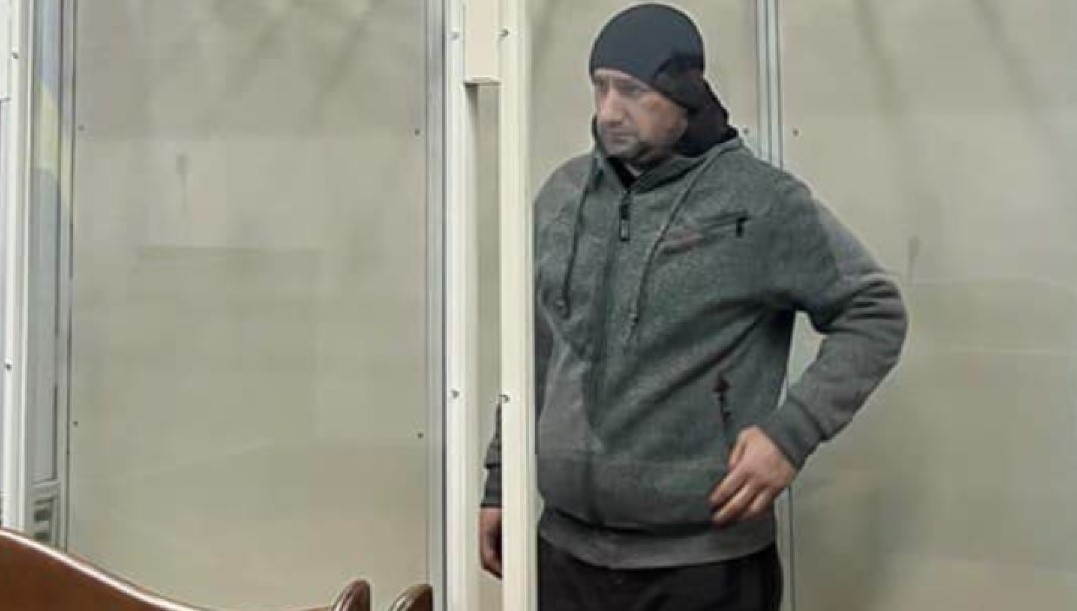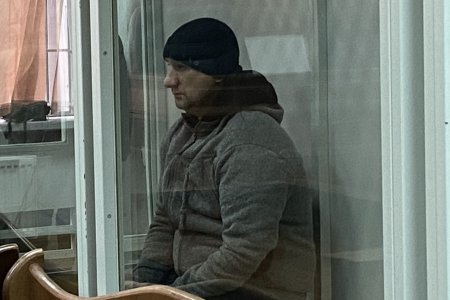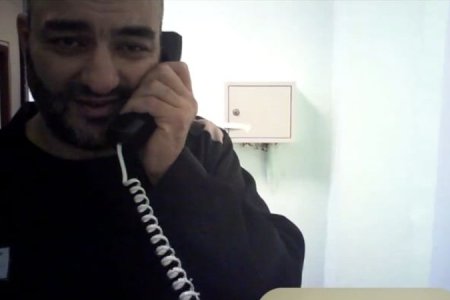
The trial is ending in Kyiv of Denys Kulykovsky, or ‘Palych’, as he was known to former Ukrainian hostages held and savagely tortured at the notorious Izolyatsia secret prison in the Russian proxy ‘Donetsk people’s republic’ [‘DPR’]. Oleh Horbachov, the lawyer representing one of the victims, has described the case as “a test for Ukraine which will demonstrate the country’s ability to bring key war criminals to justice”.
Kulykovsky’s trial began at the Shevchenkivsk District Court in Kyiv in August 2022, with both the defence and the witnesses with victim status apparently agreeing that the hearings should be behind closed doors, due to the horrific details of torture and ill-treatment described. Horbachov, who is representing Stanislav Aseyev, a well-known writer and author of an important book about Izolyatsia*, reported on 20 December that the court debate had taken place the previous week. The prosecutor had asked the court to convict Kulykovsky and sentence him to 15 years. Such a sentence was warranted, he said, given the vast scale of the war crimes committed against civilians. Kulykovsky’s final address is scheduled for 22 December, after which it remains only for the court to hand down its verdict. Horbachov has said that they will be asking the court to make the announcement of the verdict and sentence open to the media and public.
Aseyev is one of around twenty former hostages who have victim status in this case. While it is for the court to pass verdict, Kulykovsky’s identity is not in question, and the amount of testimony against him is damning. His trial is important not only because of the role he played at Izolyatsia and the fact that he is a Ukrainian citizen who is physically in custody and not needing to be tried in absentia. The case is also important because it demonstrates that the widespread and systematic torture which both UN and OSCE bodies have found Russia guilty of since its full-scale invasion of Ukraine began back in 2014. Izolyatsia, described by former inmates as a concentration camp, is the most notorious, though doubtless not the only secret prison in the Russian proxy ‘Donetsk and Luhansk republics’. There are also a large number of civilian hostages, who were savagely tortured at Izolyatsia before 2022 and who remain imprisoned to this day.
Before Russia’s aggression in 2014, the territory of Izolyatsia, a former factory, served as a vibrant art and cultural centre, run by the Izolyatsia Foundation. It was seized by Russian / Russian-controlled militants in June 2014, and used both as a military base, and as a secret prison where civilian hostages were tortured, both to extract supposed ‘confessions’ and, according to Aseyev and other former hostages, for the torturers’ ‘entertainment’.
Kulykovsky is now 39 and originally from Donetsk oblast. He had worked in Ukraine’s penitentiary service before the military conflict, and then joined the Russian and Russian-controlled militants. He headed the Izolyatsia prison from 2014 until February 2018. He was officially removed in January 2018 for excessive brutality, however former hostages believe it was due to financial conflict with the Russian ‘handler’ Vasily Viktorovych Yevdokimov, known as ‘Lenin’. There remain unanswered questions about how he came to be living in Kyiv from 2019 until his arrest, largely thanks to Aseyev, on 9 November 2021. Kulykovsky did not deny his role, and, in testimony to Ukraine’s Security Service on 12 November, spoke of the methods of torture used and of how a person known as ‘doc’ to the hostages, whom he named as Stanislav Simonov, both took part in torture and revived victims if the torture went too far. Kulykovsky also stated that Russian FSB officers were present during the so-called ‘interrogations’, and that such officers mainly worked with Yevdokimov.
The charges against Kulykovsky are of human trafficking (Article 149 of Ukraine’s Criminal Code); creating a terrorist gang or organization (Article 258-3); creating unlawful militarized or armed formations (Article 260); involvement in a crime committed by a group of people (Article 28) and violation of the laws and practice of war (Article 438). The last of these charges is effectively the only possibility under Ukraine’s current Criminal Code of prosecuting people for war crimes, and it remains woefully inadequate. Shortly after Kulykovsky’s arrest, Oleksandra Matviychuk Director of the Centre for Civil Liberties, expressed frustration over the problems that this creates and noting that the charges should have been of numerous war crimes, including murder, torture and inhumane treatment, deliberate infliction of acute suffering, grievous bodily harm as well as damage to health and rape.
Aseyev was held prisoner in ‘DPR’ for 31 months, and was imprisoned for 28 of these in Izolyatsia. In his words, Kulykovsky was not merely in charge of Izolyatsia, but, “for his own satisfaction, took part around the clock in torturing, raping and ill-treating people. At night he would get drunk, open cells and, in the best instance, beat prisoners, including women.”
Other hostages, including women, have noted that their torturers appeared to do it for fun. Many of those whom the Russians seized, tortured and held prisoner after the full-scale invasion also report that these war crimes seemed to give the perpetrators ‘pleasure’.



